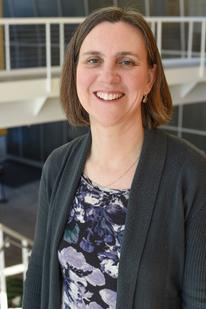
Education
- B.A., 1997,Carleton College
- Ph.D., 2001, University of California, Berkeley
Research and Teaching Interests
I am broadly interested in how cells communicate with each other and their environments. I studied the role of Transforming Growth Factor ß signaling in inhibiting tumor cell growth during graduate school. As a post-doc, I used Drosophila immune cells as a model system to assay interaction and phagocytosis of the human fungal pathogen Candida albicans. Currently, I teach exclusively and am interested in the role of active learning in improving student understanding.
Selected Recent Publications
-
Stroschein-Stevenson, S.L., Foley, E., O'Farrell, P.H., and Johnson, A.D. (2009) Phagocytosis of Candida albicans by RNAi treated Drosophila S2 cells. Methods in Molecular Biology 470:347-58.
-
Stroschein-Stevenson, S.L., Foley, E., O'Farrell, P.H., and Johnson, A.D. (2006) Identification of Drosophila gene products required for phagocytosis of Candida albicans. PLoS Biology 4:e4.
-
Stroschein, S.L., Bonni, S., Wrana, J.L., and Luo, K. (2001) Smad3 recruits the anaphase promoting complex for ubiquitination and degradation of SnoN. Genes Dev. 15:2822-2836.
-
Stroschein, S.L., Wang, W., Zhou, S., Zhou, Q., and Luo, K (1999) Negative feedback regulation of TGF-b signaling by the SnoN oncoprotein. Science 286:771-774.
-
Luo, K., Stroschein, S.L., Wang, W., Chen, D., Martens, E., Zhou, S., and Zhou, Q. (1999) The Ski oncoprotein interacts with the Smad proteins to repress TGF-b signaling. Genes Dev. 13:2196-2206.
Teaches
-
BIOL 1011 General Biology I
-
2102 Cell Biology
-
2102 Cell Biology Laboratory
-
3101 Molecular Biology of Cancer
-
3102 Cell Biology of Human Disease
Family/Hobbies
I enjoy spending time with my husband Mike and our three kids Tierney, Kai and Cora. We like to travel, cook new foods and spend time outdoors.